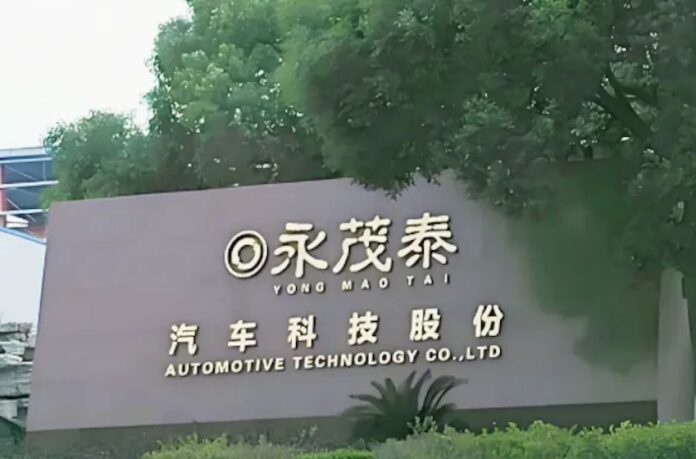Chinese company Yongmaotai Automotive Technology has announced an investment of around US $63 million to build an auto parts plant in the northern border state of Coahuila.
The Chinese news outlet Yicai Global first reported the planned investment in July, saying that Yongmaotai had announced its intention to spend 450 million Chinese yuan (US $63.1 million) on a new factory in Mexico in order to “mitigate the impact of shifting global trade policies on its European and U.S. customers’ supply chains.”
Yicai Global said that Yongmaotai, a Shanghai-based company that specializes in the production of aluminum auto parts, announced that its two Singaporean units would jointly set up “a Mexican project company” to invest in the new plant and oversee its construction and operations.
Yongmaotai said that the factory would likely take two years to build.
In September, the Mexican Chamber of Commerce in China (MEXCHAM) described the planned project as “a smart manufacturing base for automotive parts in Mexico.”
MEXCHAM said that the project is located in Coahuila, but didn’t specify where in the state.
It said that the plant will have “a planned annual production capacity of 25 million lightweight automotive parts, including turbocharger housings.”
MEXCHAM also said that “the construction period is expected to be two years, with production set to begin in the second quarter of 2027.”
It said that according to Yongmaotai’s “2025 semi-annual report,” the project has “already been successfully initiated.”
“Approval and filing procedures are currently underway in China, Singapore and Mexico, while the registration of the Mexican subsidiary is also in progress,” MEXCHAM said on Sept. 18.
China launches trade investigation into Mexico’s planned tariff hike
The business chamber noted that “Mexico enjoys zero-tariff benefits for auto parts exports to the United States” as it is party to the USMCA free trade pact, which is scheduled to be reviewed in 2026.
MEXCHAM said that Yongmaotai’s investment decision “not only represents a significant step in the company’s global strategy but also injects new vitality into China-Mexico automotive industry cooperation.”
Yongmaotai could avoid US and Mexican tariffs by manufacturing in Mexico
According to Yicai Global, Yongmaotai said in July that the investment in Mexico will “help reduce the adverse effects of changing international tariff policies” on the supply chains of its clients in Europe and the United States.
Having a plant in Coahuila would allow Yongmaotai to avoid tariffs on Chinese goods imposed by the United States, provided that those parts comply with USMCA rules, which could potentially change after next year’s review.
It would also allow Yongmaotai to avoid Mexico’s tariffs on goods from China, which are slated to rise in the near future.
The company supplies parts to automakers, including General Motors and Volkswagen, both of which manufacture vehicles in Mexico, a major auto-producing country, and in the U.S.
Yongmaotai has also announced a plan to build a $50 million plant in Indonesia as part of a strategy to diversify its manufacturing base.
More than 30 Chinese auto parts manufacturers already operate in Mexico, the majority of which export their products to the United States. Some were reportedly lured to Mexico by Tesla, which in early 2023 announced a plan to build a “gigafactory” near Monterrey, Nuevo León.
However, it currently appears unlikely that Tesla will actually build its proposed plant in Mexico. In July, Chinese electric vehicle manufacturer BYD, Tesla’s main competitor, canceled its plans to manufacture vehicles here.
Politicians in the United States and Canada have made critical remarks about Chinese investment in Mexico, which has increased in recent years.
United States President Donald Trump has floated the possibility of imposing hefty tariffs on cars made by Chinese companies in Mexico, a move aimed at dissuading Chinese automakers from opening plants here. He has also said that he wants to “renegotiate” the USMCA, rather than simply review the pact he signed off on during his first term as president.
With reports from Vanguardia, Cluster Industrial and Yicai Global
